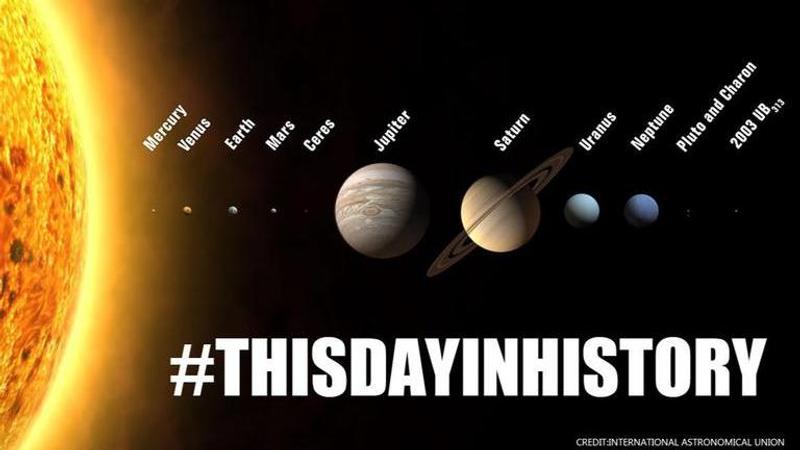Published 15:20 IST, August 24th 2020
Pluto was demoted from planet to ‘dwarf planet’ on this day in 2006; here's why
The International Astronomical Union on this day today, i.e. August 24, in 2006 demoted Pluto from planet to ‘dwarf planet’ after reclassifying the solar system

The International Astronomical Union on August 24, back in 2006 demoted Pluto from planet to ‘dwarf planet’ after reclassifying the solar system. The astronomers demoted Pluto after redefining the term ‘planethood’, which was considered a victory of scientific reasoning over historic and cultural influences. On August 24, 2006, Caltech researcher Mike Brown reportedly announced that ‘Pluto is dead’ and there are officially eight planets in the solar system.
Pluto, which was considered as the smallest planet, had been a ‘planet’ under the initial definition, however, the astronomers later said that it got demoted because it was a part of a sea of other objects that occupy same region of space. The researcher back then informed that Earth and other seven planets, on the other hand, cleared broad swaths of space of any other large objects. Pluto is now recognised as the prototype of a new category of trans-Neptunian objects.
Back in 2006, several astronomers and researchers had debated and criticised the removal of Pluto from as a planet. They even attempted to persevere Pluto, however, they were criticised for diluting the meaning of the word ‘planet’.
As per reports, the category of ‘dwarf planet’ is expected to include dozens of round objects already discovered beyond Neptune. The word ‘planet’ was originally described as wandered of the sky that moved against the relatively fixed background of star. Pluto, which was discovered in 1930, was at first thought to be larger than it is. It was also observed that Pluto has an eccentric orbit that crosses the path of Neptune and also takes it well above and below the main plane of the solar system.
Pluto demoted to ‘dwarf planet’
Astronomers had been arguing since the late 1990s on whether to demote Pluto. The first draft proposal for the definition of a planet was debated vigorously by astronomers at the 2006 IAU General Assembly in Prague and a new version slowly took shape. This new version was more acceptable to the majority and was put to the members of the IAU for a vote at the Closing Ceremony on the 24 August 2006. By the end of the Prague General Assembly, its members voted that the resolution B5 on the definition of a planet in the Solar System would be as follows:
“A celestial body that (a) is in orbit around the Sun, (b) has sufficient mass for its self-gravity to overcome rigid body forces so that it assumes a hydrostatic equilibrium (nearly round) shape, and (c) has cleared the neighbourhood around its orbit”.
(Image: IAU/Website)
After the discovery of other round, icy object in Pluto’s realm, the astronomers agreed that the diminutive world should never have been termed as a ‘planet’. The IAU announced that Solar System officially consists of eight planets Mercury, Venus, Earth, Mars, Jupiter, Saturn, Uranus and Neptune. They even said that it was agreed that planets and dwarf planets are two distinct classes of objects. The first members of the dwarf planet category are Ceres, Pluto and Eris.
Updated 15:19 IST, August 24th 2020




